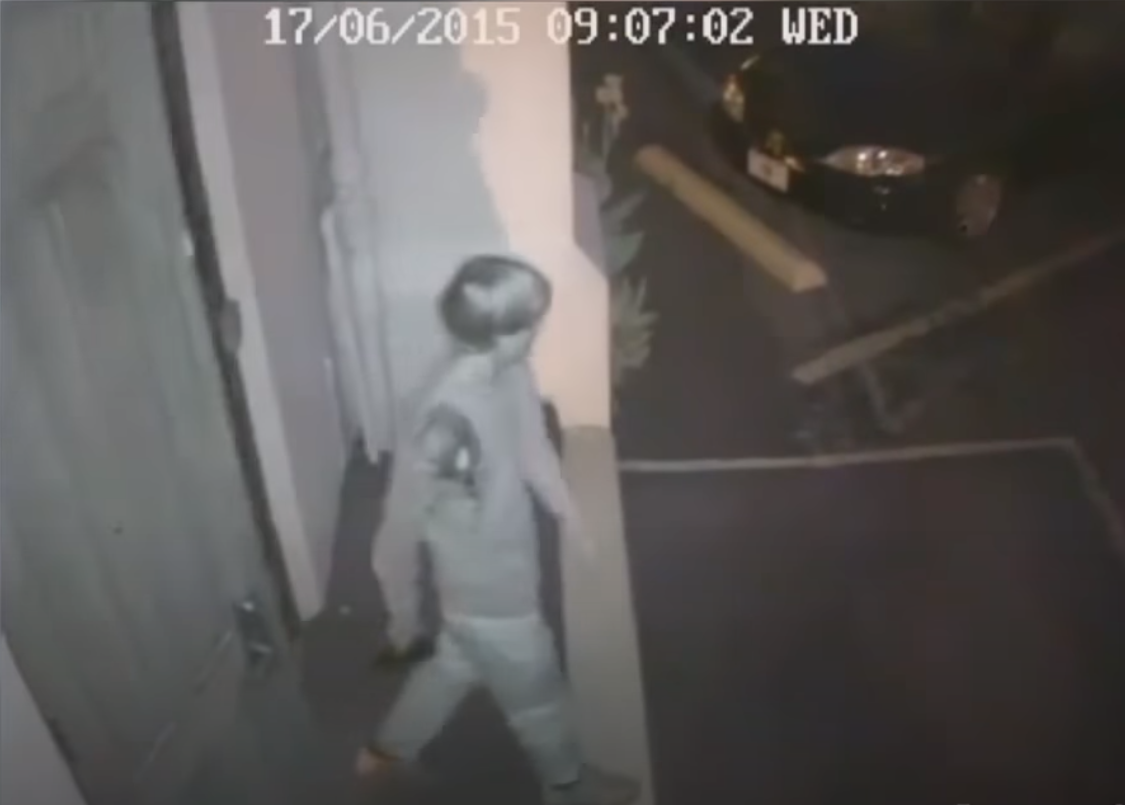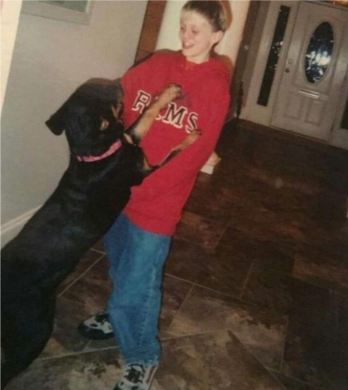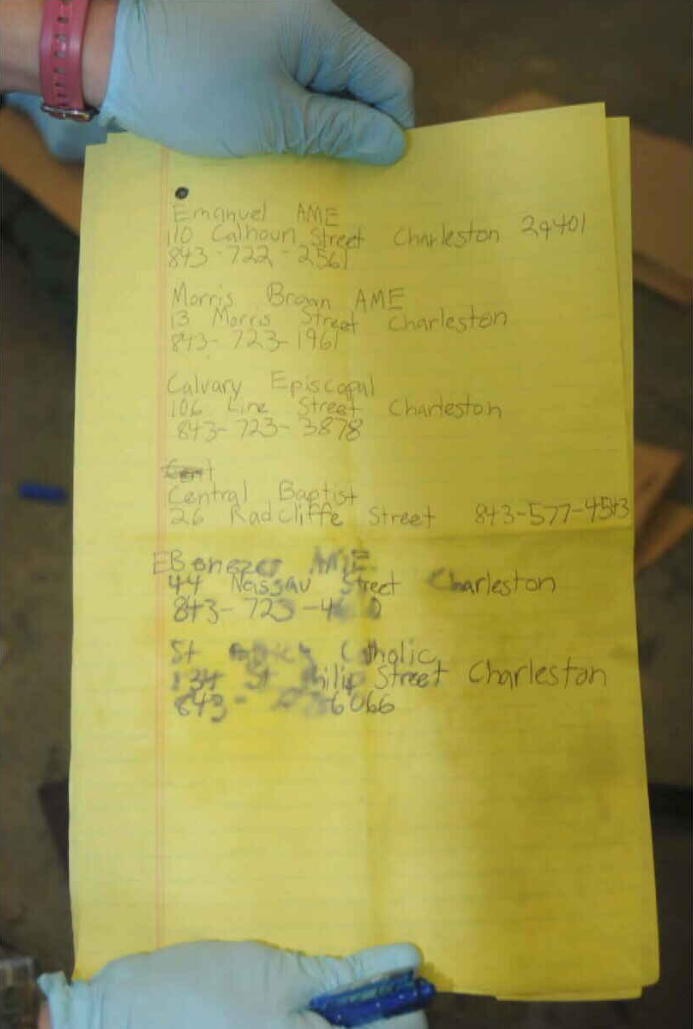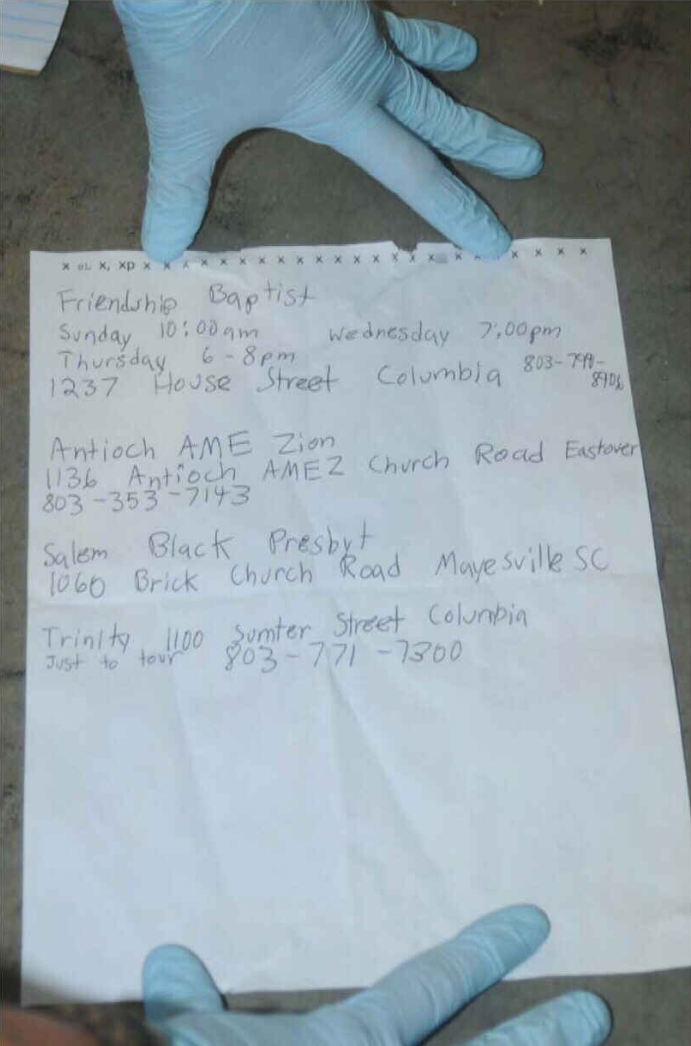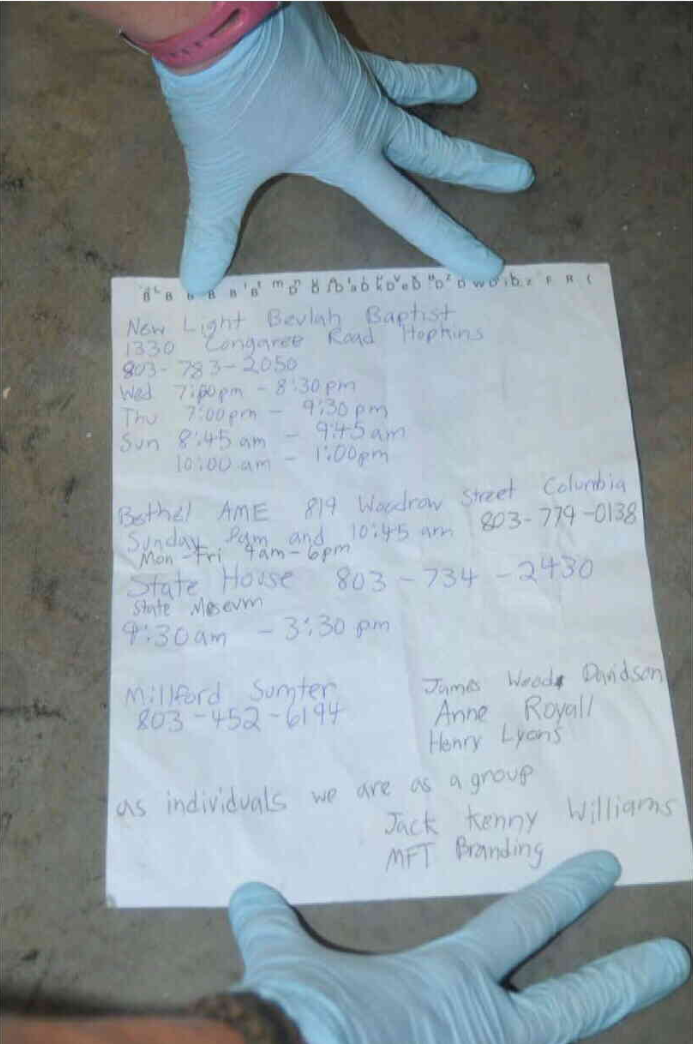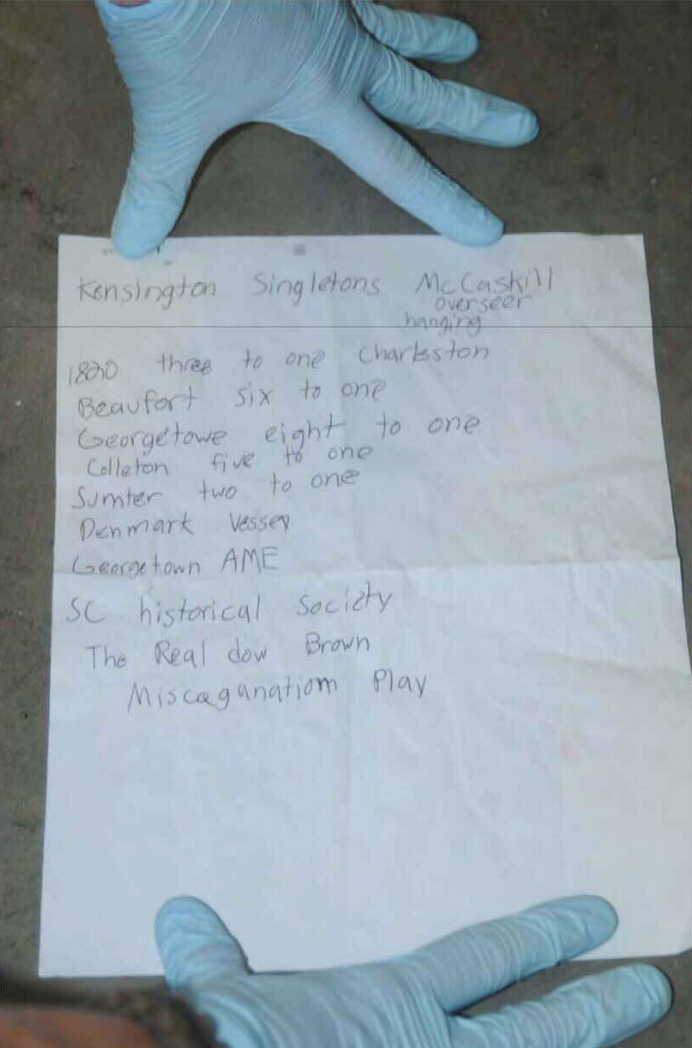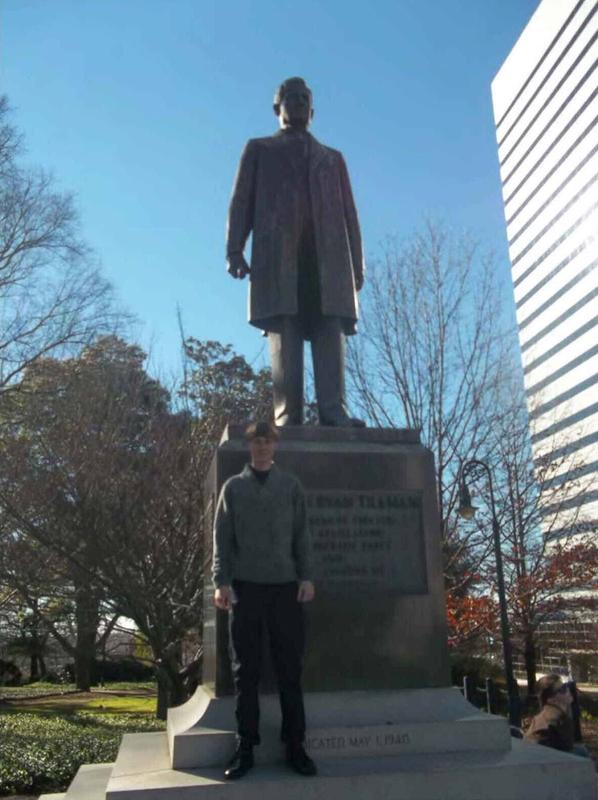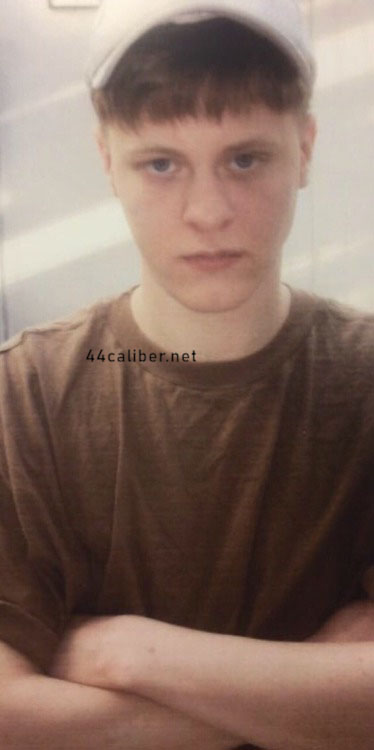June 17, 2015
In the late afternoon/early evening of June 17, 2015, Dylann Roof traveled from Eastover to Charleston, SC, arriving at around 7:48 p.m., and eventually driving to and entering Mother Emanuel AME church at 8:17 p.m.. Dylann stayed for nearly the entire bible study, and when the parishioners closed their eyes and bowed their heads to pray, he began shooting. He went on to kill Clementa Pinckney, Cynthia Hurd, Tywanza Sanders, Sharonda Singleton, DePayne Middleton-Doctor, Daniel Simmons, Susan Jackson, Ethel Lance, and Myra Thompson. Polly Shepard, a survivor, claims that during the shooting he said to her, "Shut up. Did I shoot you yet? I'm not going to. I'm gonna leave you here to tell the story." He was also asked sometime during the shooting why he was doing it and he said "I have to do it. You rape our women and you're taking over our country, and you have to go."
She had also said that he pointed the gun at himself before leaving but was out of bullets. He had planned to go to another church afterwards, but most of his ammunition was gone at this point (he had one magazine left that he claimed he was going to use to shoot himself if the police had already arrived at the church) and he stated he left too tired (I believe this was said in the interrogation video, but I need to check again). Afterwards, he seemed to make a spur of the moment decision to drive to Nashville, since he had originally expected that the police would've shown up and he would've shot himself before being able to drive away. The next morning, he was recognized by a woman driving to work, and was arrested in Shelby, North Carolina.
Some snippets from Grace Will Lead Us Home by Jennifer Berry Hawes, which describes the shooting better than I probably could:
"After the conference ended, Felicia watched most of those gathered stroll out into the waning sunset. The meeting had gone long, and the start of Bible study was now two hours behind schedule. Daniel Simmons Sr., a seventy-four-year-old retired minister who usually led the small group, wondered if they should postpone it. So did Reverend Pinckney, who faced an almost two-hour drive home.
They went back and forth. Stay. Cancel. Stay. Cancel.
DePayne Middleton Doctor, one of two women newly licensed moments earlier, spoke up: "Let's just do thirty minutes of it."
The group agreed and headed toward four round tables, the first one just outside the pastor's office door near the altar, then extending in a row down the length of the room. Five or six white plastic folding chairs waited around each."
"They'd barely opened their Bibles when the young white man entered the fellowship hall from the lobby.
...
'Are you here for Bible study?" [Pinckney] asked, towering over the slight man before him, the baritone bridging the space between them.
The visitor nodded.
Reverend Pinckney handed the young man a Bible and a copy of Myra's study guide. Then, he pulled out a chair beside him and beckoned for the man to sit. There they settled in, just the two of them at the round table closest to the altar and pastor's office. The visitor stared silently at the table.
Poly Sheppard maneuvered her eyes toward their guest at the other end of the row of tables, trying not to be obvious. He looked like a college student, if an unusually docile and quiet one, with his boying bowl haircut. The one thing that struck her was his eyes. They looked vacant and dull. Maybe he was just shy, she thought. Or hurting. Or on drugs.
In any event, if he'd come to Emanuel in search of God, they would guide him.
They went back and forth. Stay. Cancel. Stay. Cancel.
DePayne Middleton Doctor, one of two women newly licensed moments earlier, spoke up: "Let's just do thirty minutes of it."
The group agreed and headed toward four round tables, the first one just outside the pastor's office door near the altar, then extending in a row down the length of the room. Five or six white plastic folding chairs waited around each."
"They'd barely opened their Bibles when the young white man entered the fellowship hall from the lobby.
...
'Are you here for Bible study?" [Pinckney] asked, towering over the slight man before him, the baritone bridging the space between them.
The visitor nodded.
Reverend Pinckney handed the young man a Bible and a copy of Myra's study guide. Then, he pulled out a chair beside him and beckoned for the man to sit. There they settled in, just the two of them at the round table closest to the altar and pastor's office. The visitor stared silently at the table.
Poly Sheppard maneuvered her eyes toward their guest at the other end of the row of tables, trying not to be obvious. He looked like a college student, if an unusually docile and quiet one, with his boying bowl haircut. The one thing that struck her was his eyes. They looked vacant and dull. Maybe he was just shy, she thought. Or hurting. Or on drugs.
In any event, if he'd come to Emanuel in search of God, they would guide him.
Note: The next section has been shortened significantly. This comes from the second chapter if you want to read it in more detail.
The visitor sat quietly as the study continued for almost an hour. At 9 o'clock, the group began a closing prayer.
They bowed their heads and closed their eyes.
The visitor did not close his eyes.
He reached a slender hand into his pack. The cold grip of his Glock was scored, with indents that his fingers now grasped. He lifted its heavy weight in the quick motion he'd practiced and pointed the barrel at Reverend Pinckney, standing next to him. He pulled the trigger, shooting the pastor in the neck at close range. Pinckney stumbled toward the altar. The man fired at him a gain and then again, the weight of his pistol thrusting his thin wrist backward with each blast.
Reverend Pinckney fell onto the white linoleum floor.
Across a table, Reverend Simmons stood up. "Let me see my pastor. I need to check on my pastor!" he insisted. But the visitor turned the gun and pulled the trigger again. One hollow-point bullet pierced Simmons' chest, and then another... He did not make it to the side door where the killer had entered or beyond to his car, where his own gun waited. Instead, Simmons collapsed at the side doorway's cusp, moaning outside the secretary's office door, now closed. The killer shot him again, at close range.
Tywanza [Sanders] collasped onto the other side of [Felicia Sanders]. "Momma, he shot me," he said. A wound to his neck bled heavily. Warm blood seeped onto the bare skin of Felicia's legs. As the blasts continued, she had an idea. She dredged her legs through the blood. Maybe the shooter would think he had shot them all before he hurt the child, too.
The gunman stopped shooting when he reached Polly [Sheppard], dead eyes looking down at her, his heavy black pistol pointed at her feet.
"Shut up!" he snapped. "Did I shoot you yet?"
"No."
"I'm not going to," he said. "I'm going to leave you here to tell the story."
"Why are you doing this?" Tywanza asked.
The killer turned to look at him, the only other young man in the room.
"I have to do this," he replied. "Y'all raping all our white women and taking over the nation."
Tywanza pleaded, "You don't have to do this. We mean you no harm."
"I have to finish my mission."
He shot Tywanza three more times.
A single word rolled through Felicia's mind: Jesus. Jesus. Jesus.
They bowed their heads and closed their eyes.
The visitor did not close his eyes.
He reached a slender hand into his pack. The cold grip of his Glock was scored, with indents that his fingers now grasped. He lifted its heavy weight in the quick motion he'd practiced and pointed the barrel at Reverend Pinckney, standing next to him. He pulled the trigger, shooting the pastor in the neck at close range. Pinckney stumbled toward the altar. The man fired at him a gain and then again, the weight of his pistol thrusting his thin wrist backward with each blast.
Reverend Pinckney fell onto the white linoleum floor.
Across a table, Reverend Simmons stood up. "Let me see my pastor. I need to check on my pastor!" he insisted. But the visitor turned the gun and pulled the trigger again. One hollow-point bullet pierced Simmons' chest, and then another... He did not make it to the side door where the killer had entered or beyond to his car, where his own gun waited. Instead, Simmons collapsed at the side doorway's cusp, moaning outside the secretary's office door, now closed. The killer shot him again, at close range.
Tywanza [Sanders] collasped onto the other side of [Felicia Sanders]. "Momma, he shot me," he said. A wound to his neck bled heavily. Warm blood seeped onto the bare skin of Felicia's legs. As the blasts continued, she had an idea. She dredged her legs through the blood. Maybe the shooter would think he had shot them all before he hurt the child, too.
The gunman stopped shooting when he reached Polly [Sheppard], dead eyes looking down at her, his heavy black pistol pointed at her feet.
"Shut up!" he snapped. "Did I shoot you yet?"
"No."
"I'm not going to," he said. "I'm going to leave you here to tell the story."
"Why are you doing this?" Tywanza asked.
The killer turned to look at him, the only other young man in the room.
"I have to do this," he replied. "Y'all raping all our white women and taking over the nation."
Tywanza pleaded, "You don't have to do this. We mean you no harm."
"I have to finish my mission."
He shot Tywanza three more times.
A single word rolled through Felicia's mind: Jesus. Jesus. Jesus.
The other victims that aren't mentioned here are Cynthia Hurd, Sharonda Singleton, DePayne Middleton-Doctor, Susan Jackson, Ethel Lance, and Myra Thompson
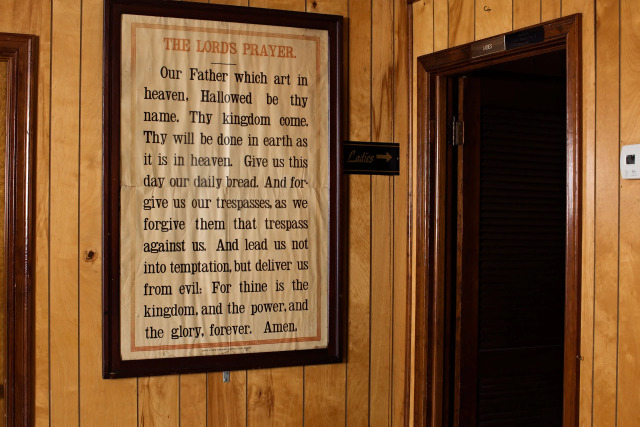
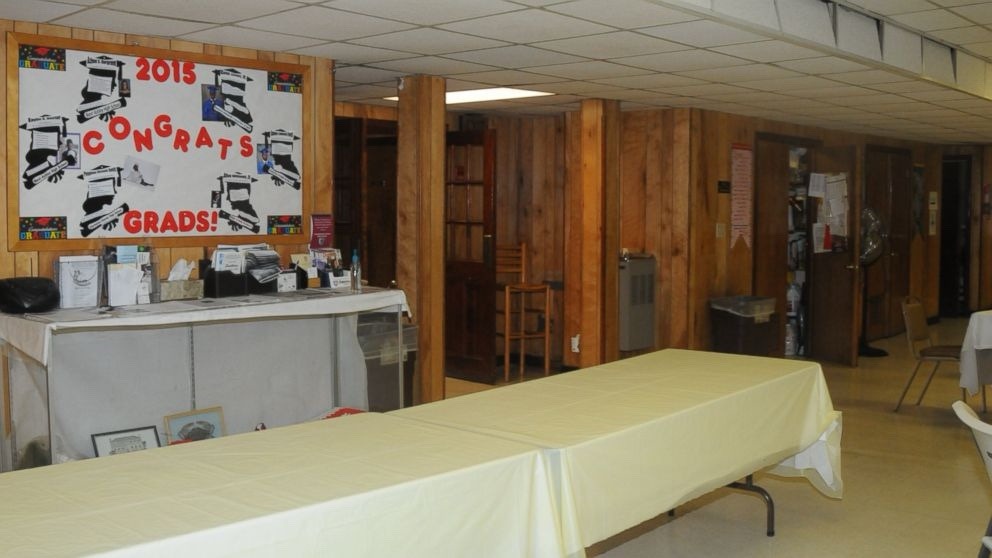
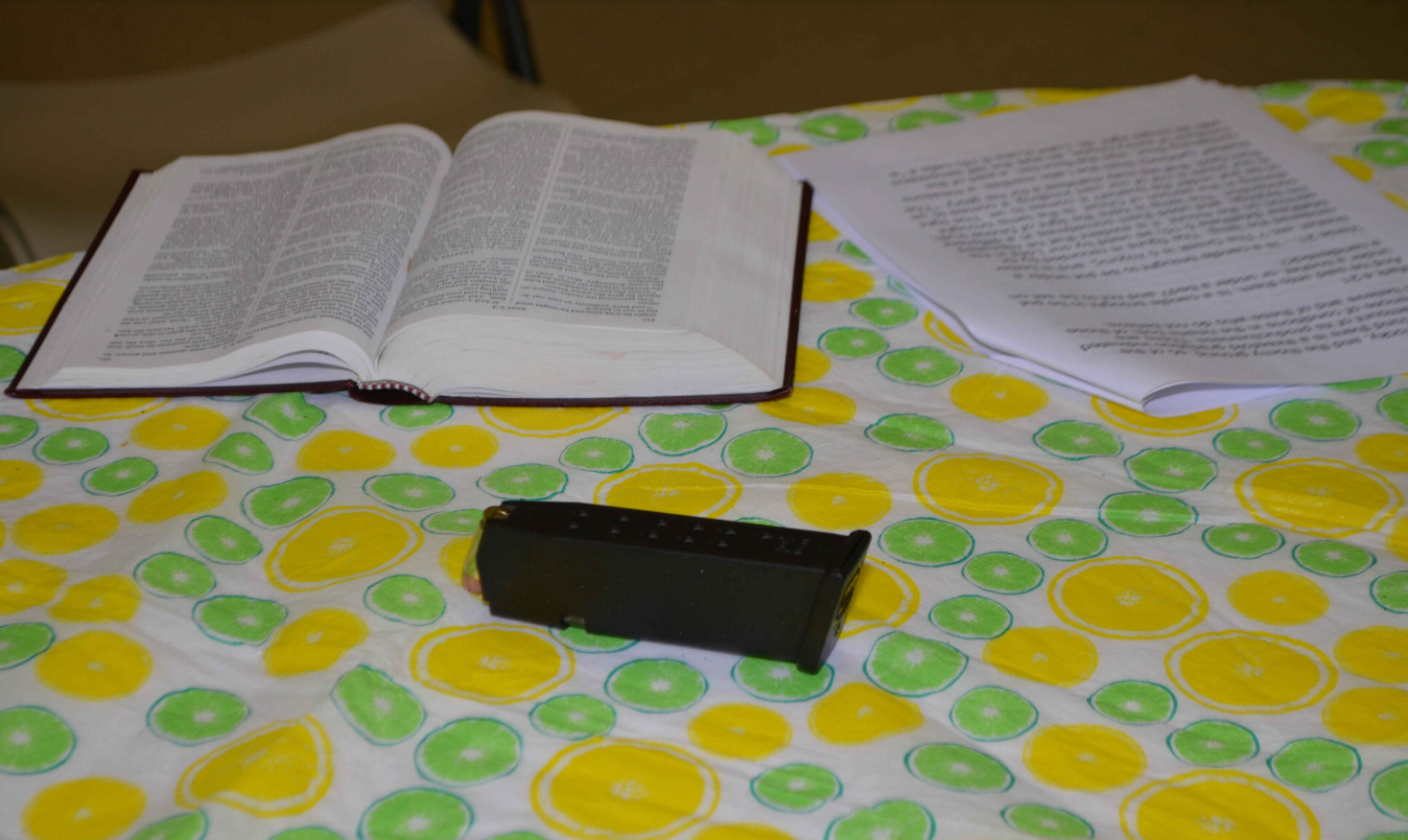
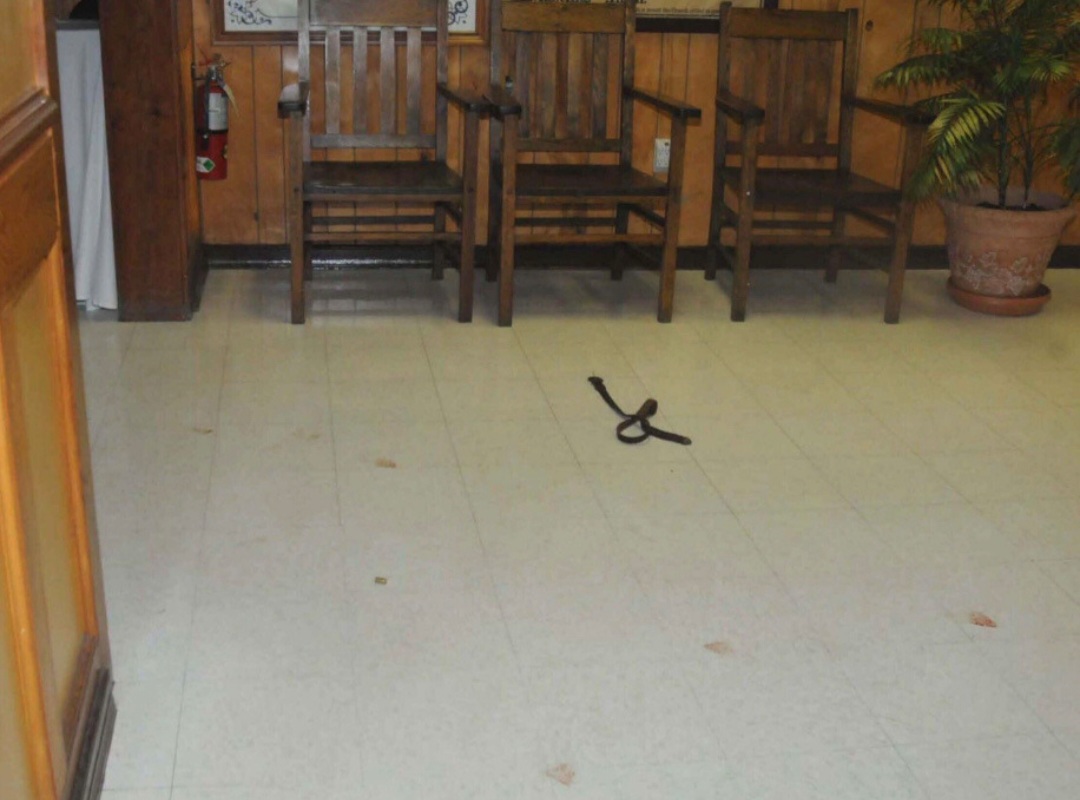
Photos inside Mother Emanuel. The last one shows Dylann's bloody footprints and his belt that was attached to the bag he hid his gun in.
There is evidence that after leaving the church, he took Interstate 26 to the Jedburg exit, and went to Branch AME Church, however the evidence of this was GPS data that was not presented at his trial. The supposed evidence shows that Dylann had turned off his GPS for several minutes, and prosecutors had planned to show that was a sign he was contemplating another attack. Just like Mother Emanuel AME Church, Branch also holds a bible study every Wednesday night. However, it is unknown if anyone was still in the church by the time that Dylann drove by (likely no earlier than 9:30 p.m.)
Dylann’s defense attorneys say that this evidence was misinterpreted and Dylann never planned to attack a second church that night. Source unknown for the next quote, sorry

Bruck says the GPS data shows Roof did not stop at the church and sped by at “30 or 40 miles per hour.”
“The evidence actually suggests that Roof simply turned off I-26 at the first deserted-looking exit, adjusted his GPS to stay on secondary roads rather than the interstate (which is why his GPS device was briefly turned off), and kept on going,” Bruck wrote in a statement released Thursday night. He goes on to say that there’s no evidence Roof knew he was near the church that night. But the FBI data says Roof had been by Branch AME at least once before in February when they say he was planning his attack.
“Now that the prosecution’s discarded theory has been made public, the government should reassure the public and the people of Branch AME Church that Roof posed no particularized threat to that congregation,” Bruck writes.
“The evidence actually suggests that Roof simply turned off I-26 at the first deserted-looking exit, adjusted his GPS to stay on secondary roads rather than the interstate (which is why his GPS device was briefly turned off), and kept on going,” Bruck wrote in a statement released Thursday night. He goes on to say that there’s no evidence Roof knew he was near the church that night. But the FBI data says Roof had been by Branch AME at least once before in February when they say he was planning his attack.
“Now that the prosecution’s discarded theory has been made public, the government should reassure the public and the people of Branch AME Church that Roof posed no particularized threat to that congregation,” Bruck writes.
At 10:30 p.m., someone claiming to be the killer called a local TV station to claim that he placed a bomb near the church, which would detonate at 11 p.m. However, when the area was checked, no explosives were found, and investigators were cleared to go back inside by 11:30. Around this time, a police officer attempted to detain an older white man, a photographer who happened to be wearing similar clothes to Dylann. Survivor Polly Shepard was quick to step in and say that wasn't him and that Dylann "looked just like a little child." The next day, more bomb threats were called into various churches holding vigils, but these threats were all false.
Dylann's Life
Just for things to be slightly easier to understand, here's a guide to some of the people in Dylann's life leading up to the shooting:
Morgan Roof is Dylann's younger sister. In March of 2018, she made a vague comment on snapchat about black people at her school being shot and was arrested for having a knife, pepper spray, and marijuana in her backpack. She's also known for interacting with Dylann's fans online a lot and posting photos of him as a kid on her tumblr.
Amber Roof is Dylann's older sister. She was supposed to get married on June 21st, four days after the shooting. The wedding was cancelled, but she then made a gofundme asking for money to cover the lost wedding costs and took it down a few days later after receiving backlash.
Danny Beard was the boyfriend of Dylann's mother. Dylann, his mother, and Morgan (possibly?) moved into his house a few years before the shooting. Danny never got to know Dylann very well because he spent his entire time living there isolated in his room, and later became frustrated with him for not wanting to talk to anyone and failing to find a job.
Joey Meek was a friend of Dylann's when they were younger, and then reconnected in the months before the shooting. Dylann briefly stayed in Joey's trailer after possibly being asked to move out of Danny Beard's house. Joey was later sentenced to 27 months in prison for lying to the FBI by denying that Dylann told him his plan to shoot up the church and for stopping a friend from calling the police to report Dylann as a suspect when they heard about the shooting.
Christon Scriven is Joey's friend. Because he is black, people tried to claim that they didn't realize Dylann was racist because he was friends with someone who was black. However, Christon and Dylann weren't very close, and only knew each other through Joey since he visited the trailer while Dylann was staying there. Christon also claimed that Dylann told him a week before the shooting that he was going to shoot up a college in Charleston, but theorized that he settled on the church because the college campus could've been hard to get onto. Dylann later said that they were never friends and that he never planned to shoot up a school.
Jacob Meek is Joey's younger brother. I think there might be a third Meek brother, but he isn't mentioned on this page.
Lindsey Fry is Joey's girlfriend. Despite her claiming that she never had a conversation with Dylann, she seemed to have various stories to tell about him that contradict everyone else's accounts of who he is as a person (examples include wanting to mug someone in Charleston, wanting to get a neck tattoo, and having interest in a black stripper even though other people from his life said that he didn't seem like the type of person to have any interest in going to a strip club). Typically the only person to agree that any of these happened is Joey.
Laura Plexico was Dylann's classmate during freshman year of high school who he later reconnected with through Joey Meek. There isn't a lot of information about her and they weren't close. Dylann later said that a story Laura told about him didn't happen and implied that he didn't know who she was.
As of writing, Dylann Storm Roof was born thirty springs ago on April 3 1994, making him twenty-one years old at the time of the shooting. He lived most of his life in Eastover, a small town in South Carolina. Dylann's family life was troubled from the start, with his biological father being unknown at first and having to deal with the inconsistent and unstable relationships of his parents. He had very few friends throughout his life, during family gatherings he seemed to only interact with and stay near his parents and sisters, and would often do activities alone, rather than engaging with other kids. At a young age, his parents started to notice signs of OCD and autism, however they did not seek out any treatment for him. Dylann was always generally uninterested in interacting with other people, always staying to himself when with other kids his age and clinging to his parents and sisters at family gatherings. However, by the time he was in eigth grade, this issues started to get significantly worse. He developed body dysmorphia to the point that he wanted people to avoid looking at him at all costs, and example of this being a passenger in his mom's car and not wanting her to pull alongside other cars because he didn't want the people inside to see him. His lack of social relationships caused his social anxiety to get increasingly worse and he constantly feared that he would be embarrassed. Around this time he also began to stop leaving the house and spent all of his time alone and at his computer.
On March 26, 2009, when Dylann was fourteen years old, he told his mom that he was going to run away and kill himself. He was brought to a doctor that same day, who noted:
Some time after this he quit high school, citing one of the main reasons as being that his issues with his appearance had only gotten worse because of his acne. He also began having anxiety about medical issues. He was at first worried about having cancer, and when doctors found that there was nothing wrong, he began to fixate on possibly having Hashimoto's disease. He started frequently visiting doctors and sought out medication for his thyroid condition, but was refused it.
In late 2012, Dr. Mubarak noted that Dylann had issues sleeping and often didn't sleep, he refused vaccines contrary to his mom and the doctor's advice, he continued to have problems with his peers, didn't leave the house, and was diagnosed with anxiety disorder NOS. A month later, Dr. Brennan noted that Dylann also has social anxiety.
Two different times in his life he worked for a landscaping company for a few months each. He ended up being unsuccessful at this job because he had an aversion to chemicals and social anxiety that made it difficult for him. At one point he said that he "would like to one day get a job as a clerk or someone in the retail field, but no one would hire him due to the way he looks."
On March 26, 2009, when Dylann was fourteen years old, he told his mom that he was going to run away and kill himself. He was brought to a doctor that same day, who noted:
“Client Reports more severe [symptoms] of OCD in past, such as repeated behaviors of locking and checking front door, washing hands, urinating at night (not having to urinate, but getting up to try more than once due to the thought that he may not have gotten it all out the first time).”
“also reports that he has anxiety about being around people, people looking at him. He doesn’t like to go anywhere where there is a crowd, and he worries ‘all the time’ about it. [He] admits to avoiding social settings/places with crowds because of the anxiety.”
“also reports that he has anxiety about . . . people looking at him.”
“also reports that he has anxiety about being around people, people looking at him. He doesn’t like to go anywhere where there is a crowd, and he worries ‘all the time’ about it. [He] admits to avoiding social settings/places with crowds because of the anxiety.”
“also reports that he has anxiety about . . . people looking at him.”
Some time after this he quit high school, citing one of the main reasons as being that his issues with his appearance had only gotten worse because of his acne. He also began having anxiety about medical issues. He was at first worried about having cancer, and when doctors found that there was nothing wrong, he began to fixate on possibly having Hashimoto's disease. He started frequently visiting doctors and sought out medication for his thyroid condition, but was refused it.
In late 2012, Dr. Mubarak noted that Dylann had issues sleeping and often didn't sleep, he refused vaccines contrary to his mom and the doctor's advice, he continued to have problems with his peers, didn't leave the house, and was diagnosed with anxiety disorder NOS. A month later, Dr. Brennan noted that Dylann also has social anxiety.
Two different times in his life he worked for a landscaping company for a few months each. He ended up being unsuccessful at this job because he had an aversion to chemicals and social anxiety that made it difficult for him. At one point he said that he "would like to one day get a job as a clerk or someone in the retail field, but no one would hire him due to the way he looks."
"Brock Pack would testify that he was a crew leader at Clark's and supervised the crew on which the defendant often spaced or zoned out while working. One day, while working on a house by the lake the defendant was edging around the rocks by the lake. There was no fence and Mr. Pack noticed that the defendant was edging three houses down from the house they were working on. Mr. Pack had trouble getting the defendant's attention and had to get in front of the defendant to get him back on the right property. Mr. Pack would testify that the work crew went to lunch together most every day. If the crew sat down for lunch before the defendant, the defendant would go sit somewhere else by himself, even though the rest of the crew was sitting together. The only time the defendant would sit with the crew was when he sat down first and the crew sat next to him. Mr. Pack had a hard time knowing when the defendant was joking because he said everything in a monotone voice and would not crack a smile when joking. Mr. Pack would testify that the defendant often wore two shirts and had his pants rolled up at the bottom with his socks pulled high. The defendant seemed to have no interests outside of work.
John Patton would testify that he was a co-worker of Dylann Roof's at Clark's. Mr. Patton tried to get to know the defendant, but it was hard to do so because it was difficult to get answers from the defendant that were more than a word or two. The defendant told Mr. Patton that he was only working because his dad made him. Mr. Patton also observed the defendant when he was working on the yard three houses down from the yard they were supposed to be working on. Mr. Patton observed that the defendant fell asleep virtually any time he was stationary, even when he was in the truck for only 2 or 3 minutes on the way to the next job. Mr. Patton also observed the defendant sitting on his own at lunch. Mr. Patton once asked the defendant about hobbies and the defendant said he did not do anything; he just went home and sat in his room. Mr. Patton asked if the defendant played video games and the defendant responded, "No, I literally look at the walls."
Brian Fanning would testify that he is a manager of the landscaping division at Clark's and interacted with the defendant in the morning and afternoon each day when the defendant worked at Clark's. The defendant worked at Clark's for approximately two months in 2014 (from late March to early June) and for less than two months in 2015 (from mid-April to late May). Mr. Fanning would testify that the defendant was extremely quiet; it was like pulling teeth to get him to give more than a one-word answer. Even when he did give a longer answer, it would take the defendant a long time to provide an answer of any kind." Frustrated with Dylann spending every hour of the day isolated in his bedroom for years, having made little to no life progress for several years, and having lost his job for a second time, his mother and her boyfriend (who he was living with) decided to cut off internet access.
John Patton would testify that he was a co-worker of Dylann Roof's at Clark's. Mr. Patton tried to get to know the defendant, but it was hard to do so because it was difficult to get answers from the defendant that were more than a word or two. The defendant told Mr. Patton that he was only working because his dad made him. Mr. Patton also observed the defendant when he was working on the yard three houses down from the yard they were supposed to be working on. Mr. Patton observed that the defendant fell asleep virtually any time he was stationary, even when he was in the truck for only 2 or 3 minutes on the way to the next job. Mr. Patton also observed the defendant sitting on his own at lunch. Mr. Patton once asked the defendant about hobbies and the defendant said he did not do anything; he just went home and sat in his room. Mr. Patton asked if the defendant played video games and the defendant responded, "No, I literally look at the walls."
Brian Fanning would testify that he is a manager of the landscaping division at Clark's and interacted with the defendant in the morning and afternoon each day when the defendant worked at Clark's. The defendant worked at Clark's for approximately two months in 2014 (from late March to early June) and for less than two months in 2015 (from mid-April to late May). Mr. Fanning would testify that the defendant was extremely quiet; it was like pulling teeth to get him to give more than a one-word answer. Even when he did give a longer answer, it would take the defendant a long time to provide an answer of any kind." Frustrated with Dylann spending every hour of the day isolated in his bedroom for years, having made little to no life progress for several years, and having lost his job for a second time, his mother and her boyfriend (who he was living with) decided to cut off internet access.
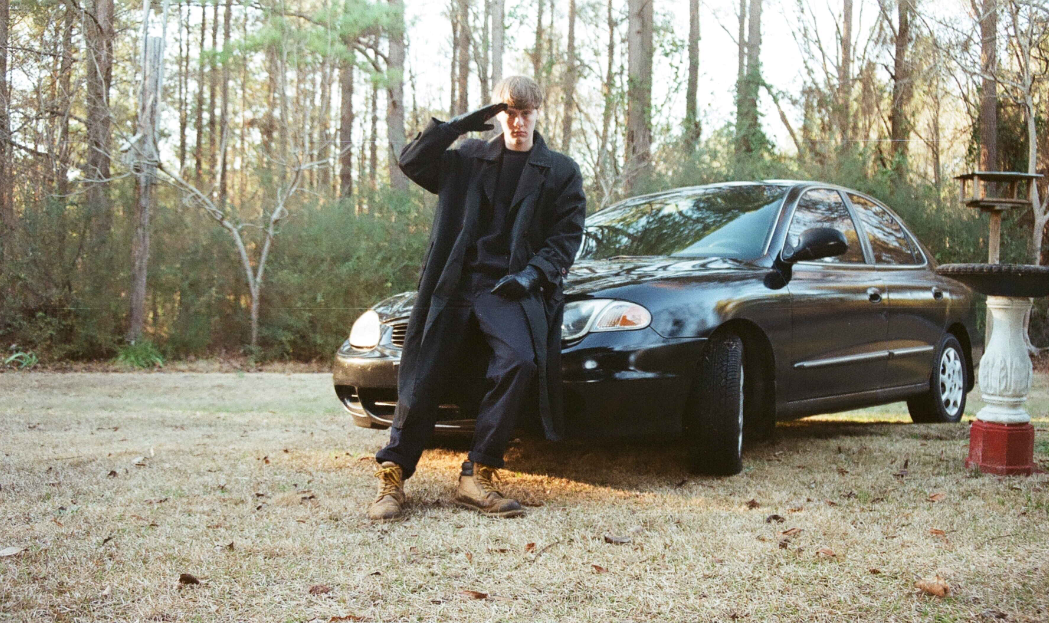
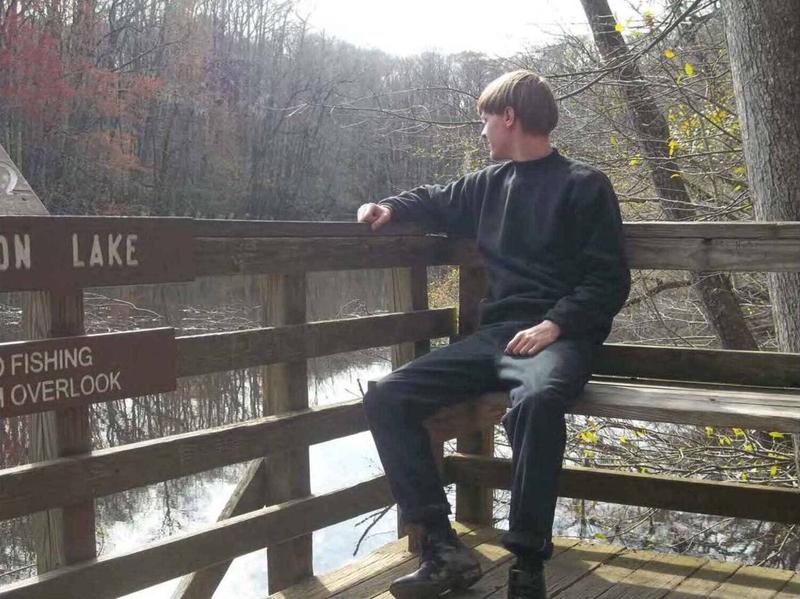
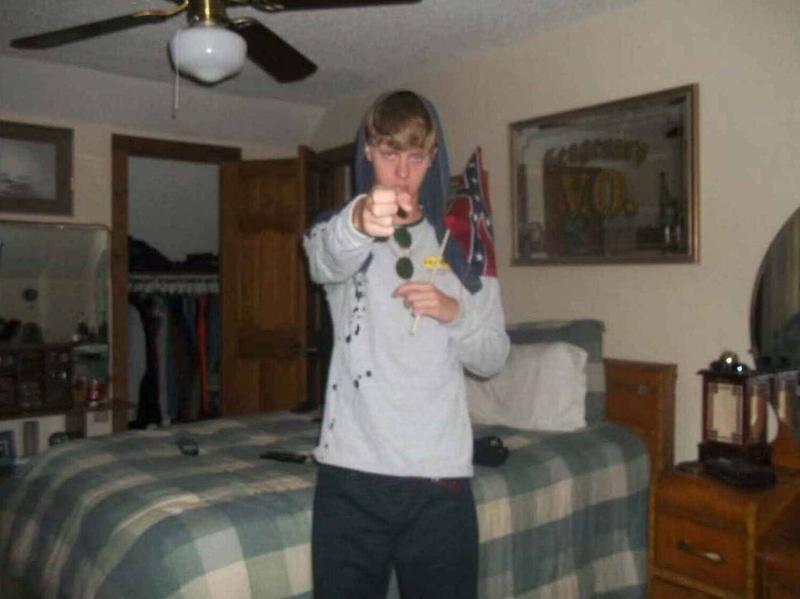
"Mr. Bruck, one of the country's most experienced death penalty litigators, portrayed his 22-year-old client as a loner whose most meaningful relationship seemed to be with his cat; who staged hundreds of photographs of himself with no sign of friends; who had no escape plan and left suicide notes to his parents."
Dylann's interest in white nationalism started in the summer of 2013 after hearing about the Trayvon Martin case and deciding to search "black on white crime" on the internet to see if they got as much coverage in the media as white on black murders did. He said that before researching the information he found online, he always had "uncomfortable" feelings that he could not explain. He felt that what he had learned from the internet offered an explanation for the way he felt, and that he always knew that something was wrong, but didn't know what it was. "I have never been the same since that day... At this moment, I realized that something was very wrong." (lastrhodesian.com) As this interest grew, he began visiting plantations and historical sites in South Carolina, as well as occasionally trying to find friends on stormfront. When Dylann tried to speak to his family members about his ideas about race, he realized that they disagreed and that his thoughts could be taken as offensive, so he learned to keep them to himself. Because he stopped expressing these ideas to others, there was nobody to try to dispel them, and he was left with only interacting with people he agreed with on the internet.
From lastrhodesian.com:
"I was not raised in a racist home or environment. Living in the South, almost every White person has a small amount of racial awareness, simply because of the numbers of negroes in this part of the country. But it is a superficial awareness. Growing up, in school, the White and black kids would make racial jokes toward each other, but all they were were jokes. Me and White friends would sometimes would watch things that would make us think that “blacks were the real racists” and other elementary thoughts like this, but there was no real understanding behind it.
The event that truly awakened me was the Trayvon Martin case. I kept hearing and seeing his name, and eventually I decided to look him up. I read the Wikipedia article and right away I was unable to understand what the big deal was. It was obvious that Zimmerman was in the right. But more importantly this prompted me to type in the words “black on White crime” into Google, and I have never been the same since that day. The first website I came to was the Council of Conservative Citizens. There were pages upon pages of these brutal black on White murders. I was in disbelief. At this moment I realized that something was very wrong. How could the news be blowing up the Trayvon Martin case while hundreds of these black on White murders got ignored?
From this point I researched deeper and found out what was happening in Europe. I saw that the same things were happening in England and France, and in all the other Western European countries. Again I found myself in disbelief. As an American we are taught to accept living in the melting pot, and black and other minorities have just as much right to be here as we do, since we are all immigrants. But Europe is the homeland of White people, and in many ways the situation is even worse there. From here I found out about the Jewish problem and other issues facing our race, and I can say today that I am completely racially aware."
The event that truly awakened me was the Trayvon Martin case. I kept hearing and seeing his name, and eventually I decided to look him up. I read the Wikipedia article and right away I was unable to understand what the big deal was. It was obvious that Zimmerman was in the right. But more importantly this prompted me to type in the words “black on White crime” into Google, and I have never been the same since that day. The first website I came to was the Council of Conservative Citizens. There were pages upon pages of these brutal black on White murders. I was in disbelief. At this moment I realized that something was very wrong. How could the news be blowing up the Trayvon Martin case while hundreds of these black on White murders got ignored?
From this point I researched deeper and found out what was happening in Europe. I saw that the same things were happening in England and France, and in all the other Western European countries. Again I found myself in disbelief. As an American we are taught to accept living in the melting pot, and black and other minorities have just as much right to be here as we do, since we are all immigrants. But Europe is the homeland of White people, and in many ways the situation is even worse there. From here I found out about the Jewish problem and other issues facing our race, and I can say today that I am completely racially aware."
From Donna Maddox's psychiatric evaluation of Dylann:
Dylann told his grandfather that he is a paranoid schizophrenic based on having completed a symptom checklist online. His grandfather said that as a kid, Dylann would pick a letter and read the articles from an encyclopedia.
Shortly before the shooting, he told Laura Plexico that he was doing "horrible, my life is falling apart." She also claimed that Dylann was very quiet and talked to himself, and that a year or two before, she went to his mother's house and found that he was drunk and crying. (Note: In Dylann's written "clarifications", he said this specific event did not happen)
Jacob Meek described Dylann as looking tired and lifeless in the month before the shooting
Christon Scriven described that one minute Dylann was happy, then he'd be sad and depressed looking. He'd sit in his car listening to opera music, sad and depressed; these mood changes occurred quite often. Scriven also described that Dylann was "weird, schizo and would flip out and calm down just as quickly."
Joey Meek was one of Dylann's only friends, and Dylann would not hang out independent of Joey. His brother, Jacob Meek, said that when Dylann reconnected with Joey, he was even quieter than he was before. Lindsey Fry said Dylann was very quiet and didn't say much, and that he always stayed to himself and only talked to Joey. She and him had never had a conversation. (Note: When talking to Rachel Lofton, Dylann said that his only friend is Jack Chandler, who had previously died in 2013, and considers Joey Meek to be “an associate.”)
When Dylann first arrived at the house of Danny Beard's, his mother's boyfriend, he shook Danny's hand, was shy, and went right to his assigned room. In the years before the shooting, Danny wanted Dylann to leave the house, but Dylann did not want to leave the house or his room. He also said that Dylann did not have many friends. He noticed that Dylann was very particular about a certain face wash, his clothes had to be washed in a certain detergent, and was particular about food.
Dylann's mother said that when repeating something he said, "you had to get every word correct, you had to get it just the way he said it, or he would say that you are wrong." She stated that he wore two pairs of pants and was obsessed about skin acne and laundry detergent. She didn't expect him to get a driver's license because it took so long. After he got a job, then lost it, then got it again, she and Danny cut off internet service.
His parents both described him as not being affectionate and his mother would have to "chase him for a hug; she would force him and he would pat her."
Most of the people in Dylann's life claimed that he was quiet, "seemed down", kept to himself, didn't interact socially, and didn't have other friends. People in Dylann's family all note that he would not leave his room. He would rarely give anything other than one-word responses to anyone, and it was very difficult to initiate conversation with him.
Shortly before the shooting, he told Laura Plexico that he was doing "horrible, my life is falling apart." She also claimed that Dylann was very quiet and talked to himself, and that a year or two before, she went to his mother's house and found that he was drunk and crying. (Note: In Dylann's written "clarifications", he said this specific event did not happen)
Jacob Meek described Dylann as looking tired and lifeless in the month before the shooting
Christon Scriven described that one minute Dylann was happy, then he'd be sad and depressed looking. He'd sit in his car listening to opera music, sad and depressed; these mood changes occurred quite often. Scriven also described that Dylann was "weird, schizo and would flip out and calm down just as quickly."
Joey Meek was one of Dylann's only friends, and Dylann would not hang out independent of Joey. His brother, Jacob Meek, said that when Dylann reconnected with Joey, he was even quieter than he was before. Lindsey Fry said Dylann was very quiet and didn't say much, and that he always stayed to himself and only talked to Joey. She and him had never had a conversation. (Note: When talking to Rachel Lofton, Dylann said that his only friend is Jack Chandler, who had previously died in 2013, and considers Joey Meek to be “an associate.”)
When Dylann first arrived at the house of Danny Beard's, his mother's boyfriend, he shook Danny's hand, was shy, and went right to his assigned room. In the years before the shooting, Danny wanted Dylann to leave the house, but Dylann did not want to leave the house or his room. He also said that Dylann did not have many friends. He noticed that Dylann was very particular about a certain face wash, his clothes had to be washed in a certain detergent, and was particular about food.
Dylann's mother said that when repeating something he said, "you had to get every word correct, you had to get it just the way he said it, or he would say that you are wrong." She stated that he wore two pairs of pants and was obsessed about skin acne and laundry detergent. She didn't expect him to get a driver's license because it took so long. After he got a job, then lost it, then got it again, she and Danny cut off internet service.
His parents both described him as not being affectionate and his mother would have to "chase him for a hug; she would force him and he would pat her."
Most of the people in Dylann's life claimed that he was quiet, "seemed down", kept to himself, didn't interact socially, and didn't have other friends. People in Dylann's family all note that he would not leave his room. He would rarely give anything other than one-word responses to anyone, and it was very difficult to initiate conversation with him.
pre-shooting events
Dylann began planning the shooting in late 2014/early 2015. He started frequently visiting Charleston and researching black churches in the area. On the morning of December 22, 2014, Dylann visited Charleston and went to Boone Hall Plantation. Later that day he drove by Mother Emanuel AME church at around 3:30 p.m.
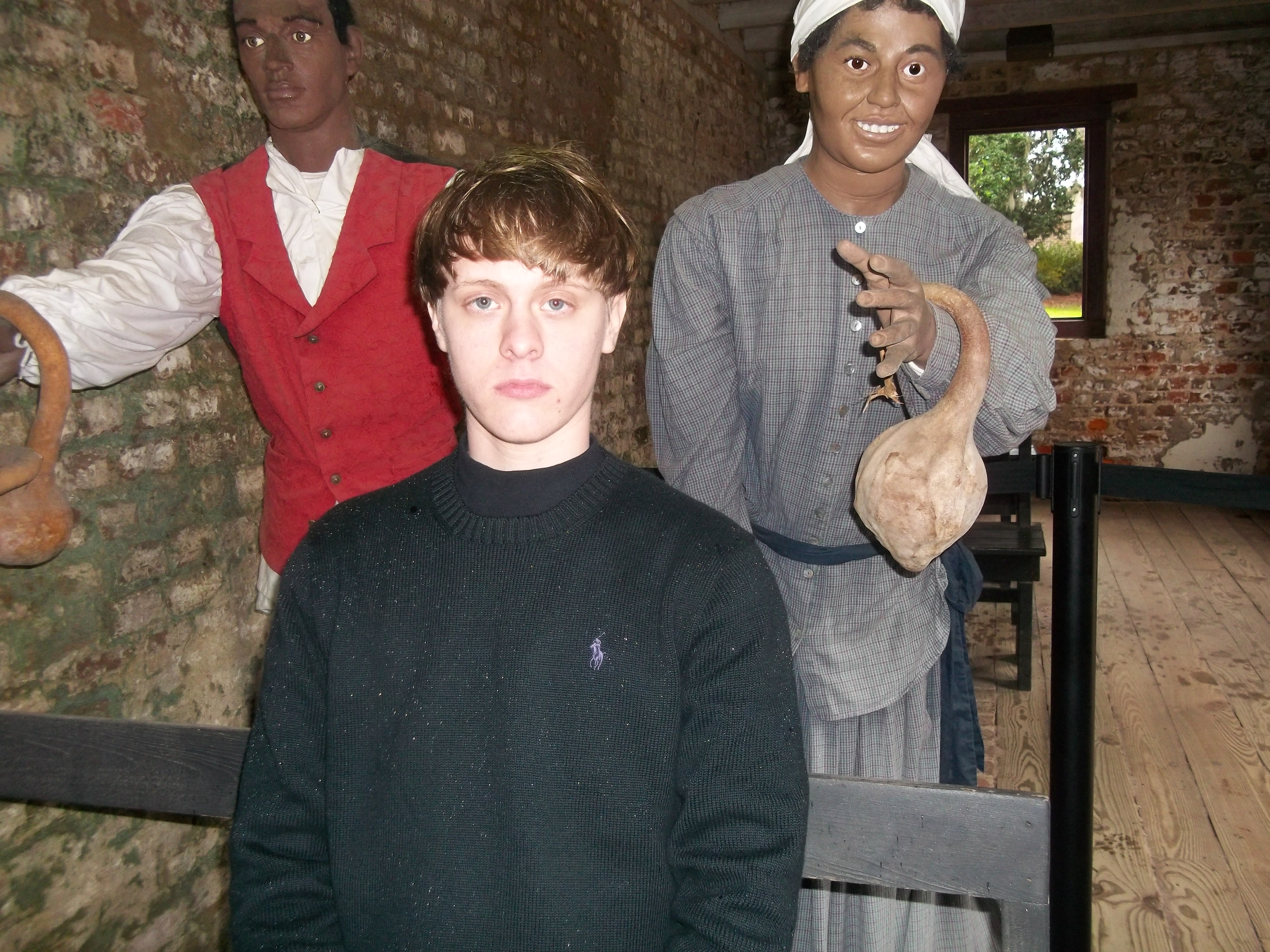


He said that the first photo was his favorite out of all the ones he had on his website, but apparently the last two weren't worthy enough for the public to see
On February 9, 2015, Dylann purchased the Rhodesia and apartheid South Africa patches that he would put on his jacket. Later that day he registered the lastrhodesian.com domain. On February 23rd at 7:43 p.m., he made a phone call to Mother Emanuel AME church. On February 27th, he travelled to Charleston again and took photos at Magnolia Plantaion and Gardens, Angel Oak tree, and Sullivan's Island. He drove by the church again at 8:12 p.m.
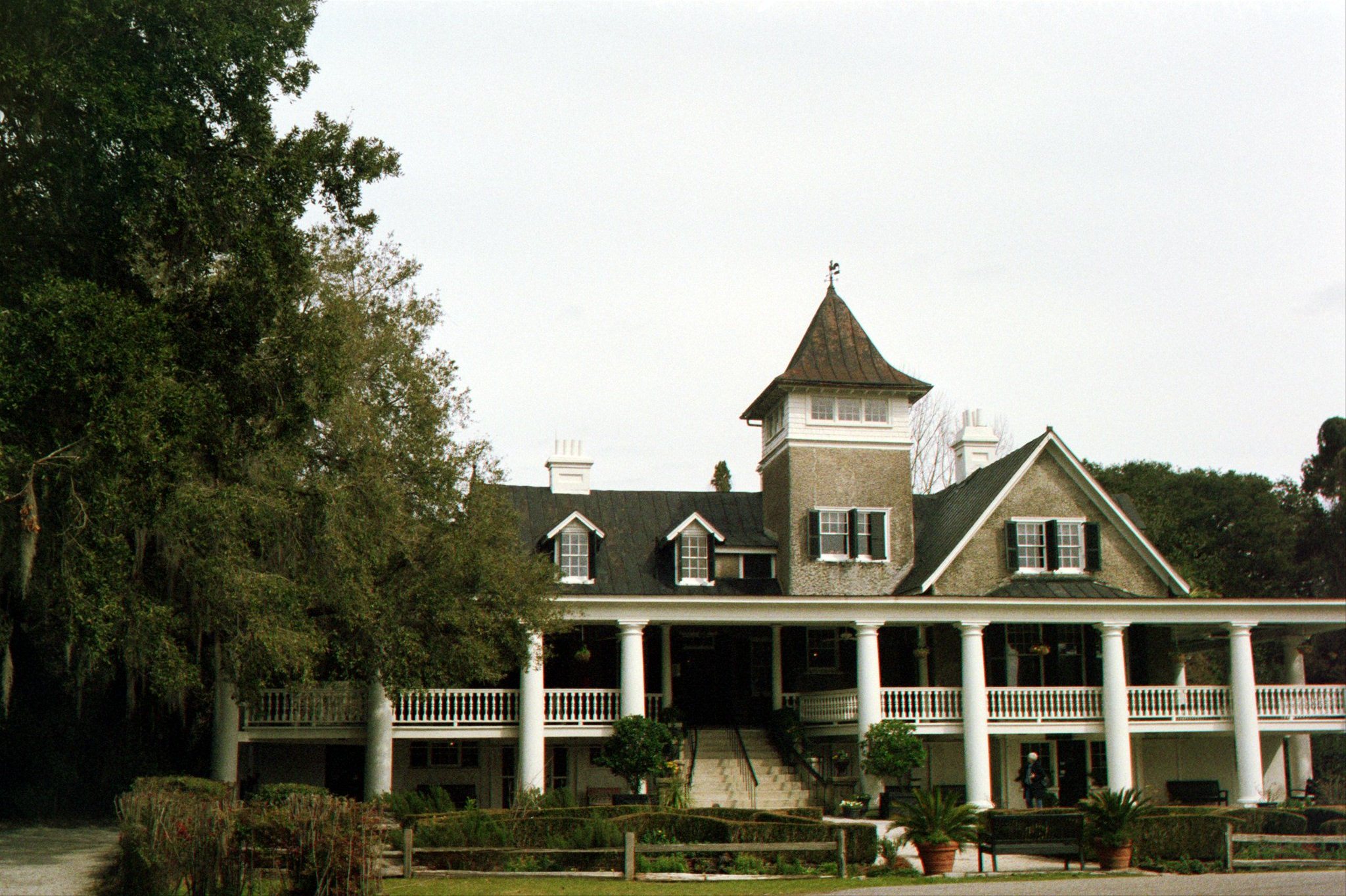
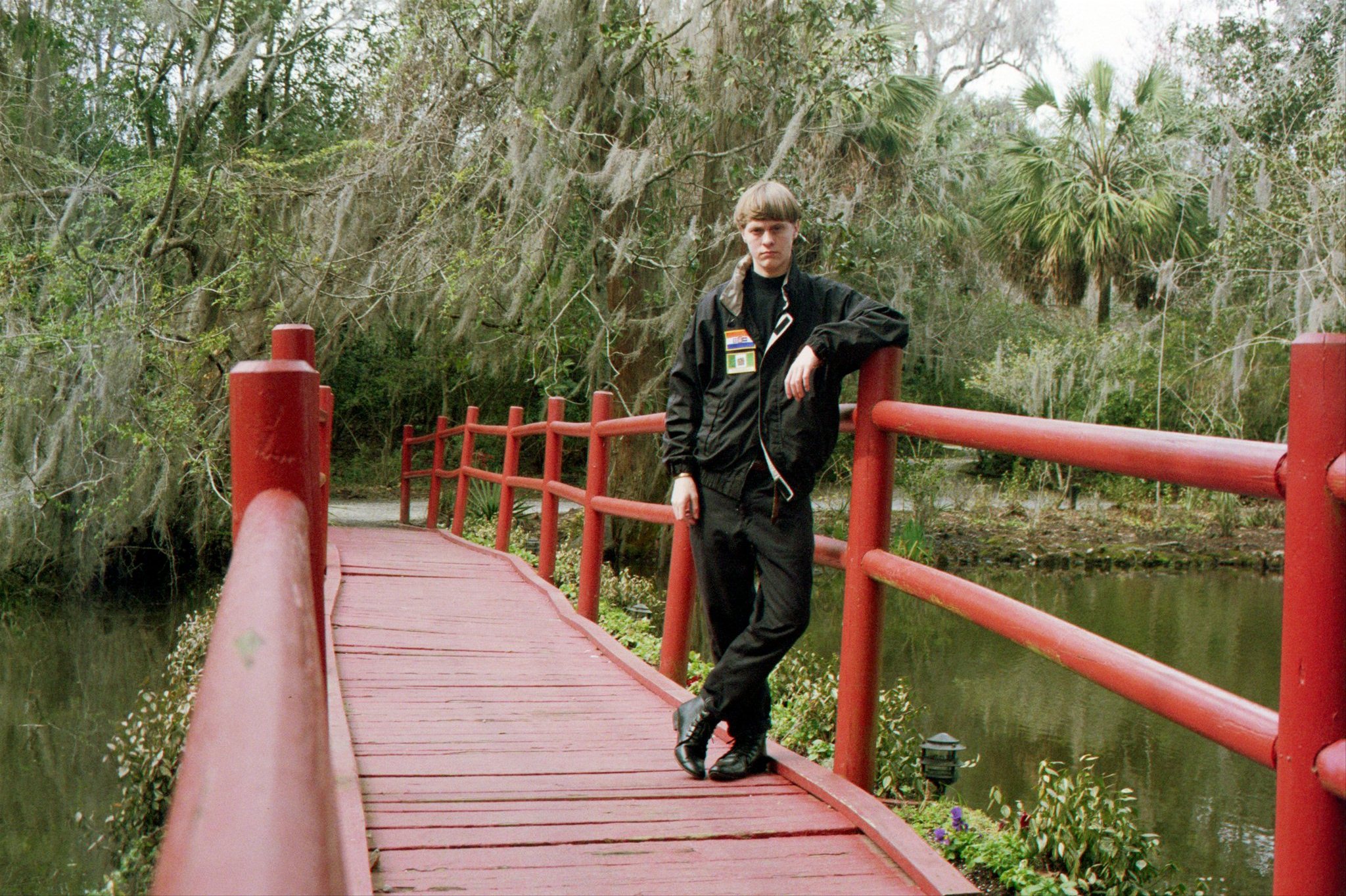

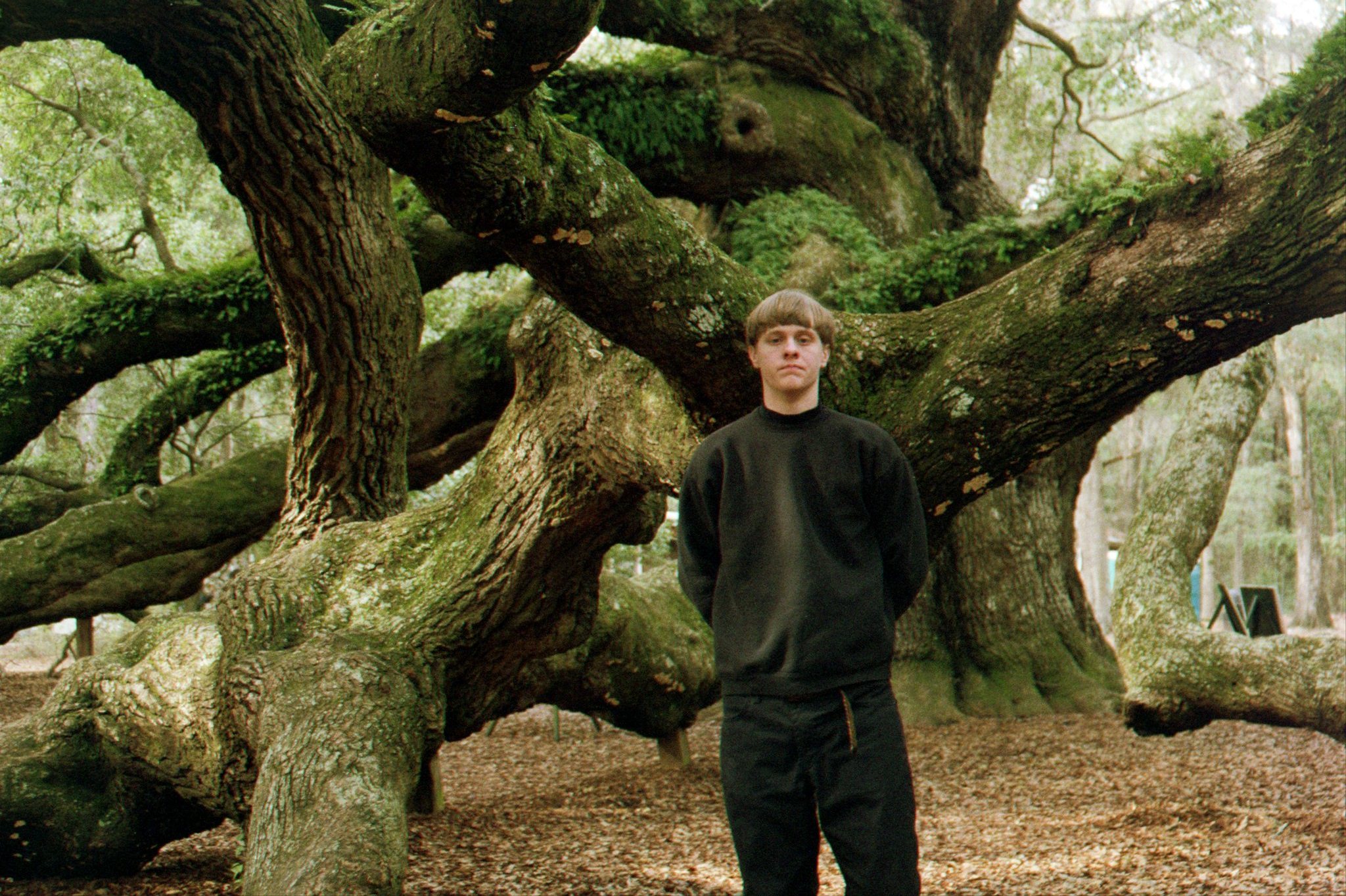
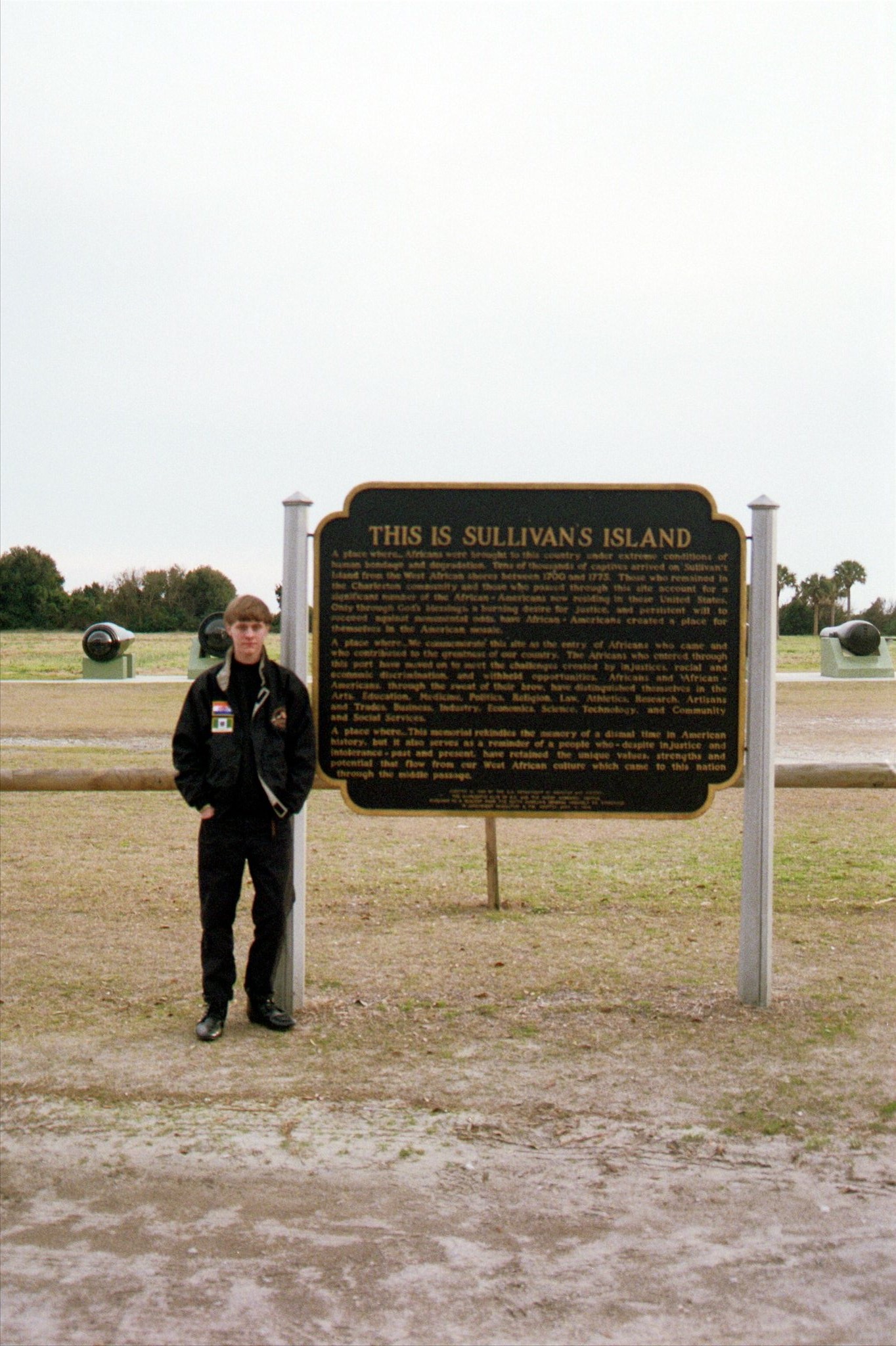
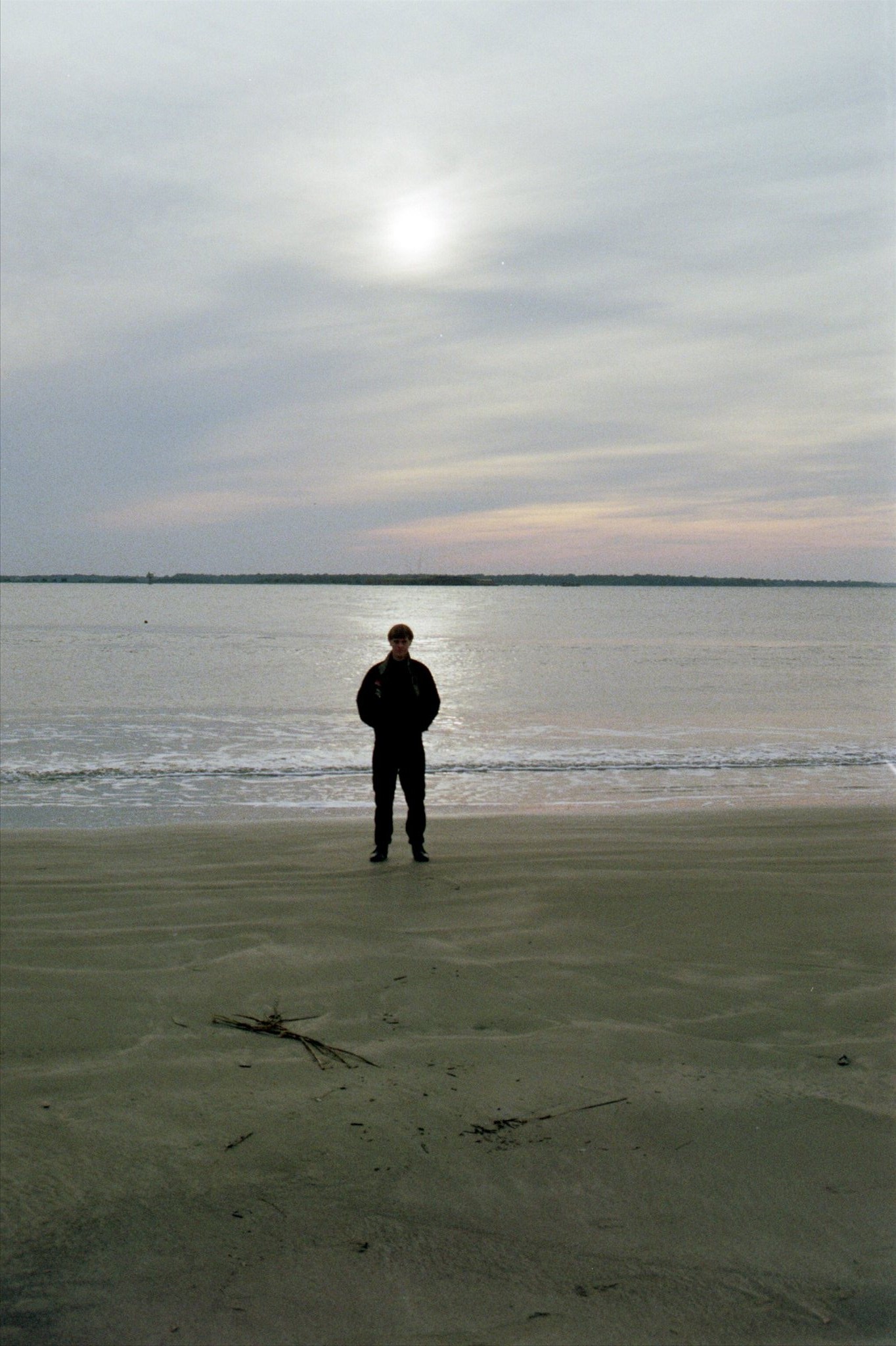
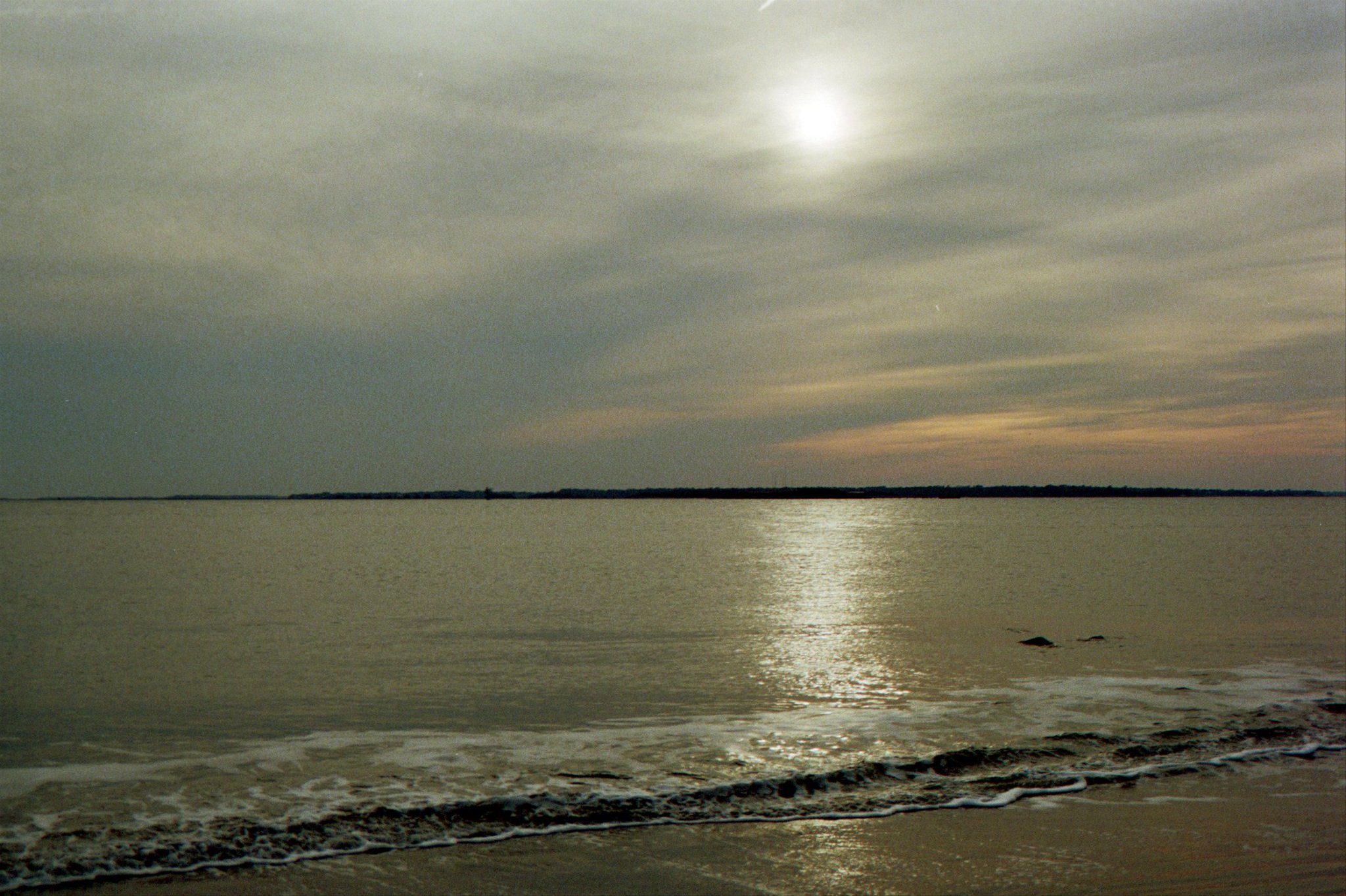
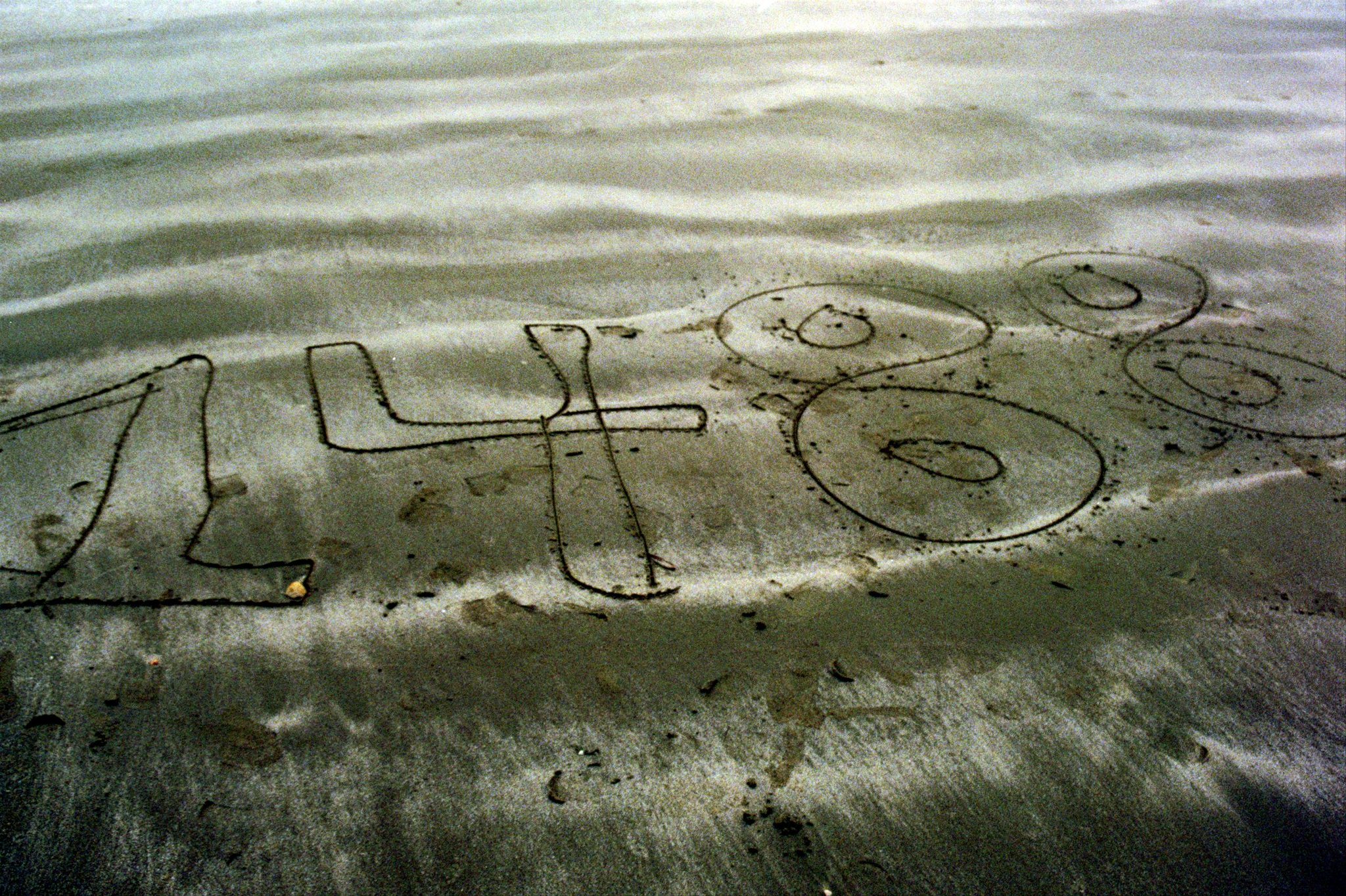
Also in February, he posted a Craigslist ad as well as a photo of him standing in front of a memorial at South Carolina's statehouse. The ad read: "No Jews, queers, or niggers." Dr. Thomas Hiers, a retired child psychologist, noticed the ad and responded with a message that he was surprised by the writer's multiple biases. Dylann wrote back stating that Black men are rapists, the Holocaust never happened, and homosexuals are sick. Dr. Hiers suggested that Dylann would expose himself to other viewpoints, and offered to pay him to listen to some TED talks. Dylann thanked him for the suggestion and said that he seemed like a nice man before writing:
Dr. Hiers then contacted John Connery, a colleague in SC who had also studied psychology, who agreed to help Dylann. Dr. Hiers wrote "My friend would like to take you out to lunch – he will try to help you get your life moving", to which Dylann never responded.
On February 28, mall security at Columbiana Centre called the police on Dylann for asking "strange questions". The incident report notes: "Mr. Dylann then began speaking very nervously and stated that his parents were pressuring him to get a job." He was arrested for a misdemeanor charge of drug possesion after police searched his car and found Suboxone. He was also banned from Columbiana Centre for a year. On March 13, he was recognized by a police officer who believed he was loitering in his car near a park in downtown Columbia. When his car was searched, the police found four 30 round magazines, two 40 round AR-15 magazines, a box for ammunition for an AR-15 with 300 bullets, a fore grip, and a four way rail system for an AR-15, but no weapons.
"I’m sorry I just can’t do
it. I’m very depressed right now and I feel sick. . . . I know I believe you, but I’m so depressed right now all I can do is sleep. Everyone rejects me and I have no friends, even though im cool. Im just being wasted and I cant take it. Im sorry, im going back to sleep now.”
Dr. Hiers then contacted John Connery, a colleague in SC who had also studied psychology, who agreed to help Dylann. Dr. Hiers wrote "My friend would like to take you out to lunch – he will try to help you get your life moving", to which Dylann never responded.
On February 28, mall security at Columbiana Centre called the police on Dylann for asking "strange questions". The incident report notes: "Mr. Dylann then began speaking very nervously and stated that his parents were pressuring him to get a job." He was arrested for a misdemeanor charge of drug possesion after police searched his car and found Suboxone. He was also banned from Columbiana Centre for a year. On March 13, he was recognized by a police officer who believed he was loitering in his car near a park in downtown Columbia. When his car was searched, the police found four 30 round magazines, two 40 round AR-15 magazines, a box for ammunition for an AR-15 with 300 bullets, a fore grip, and a four way rail system for an AR-15, but no weapons.
On his 21st birthday in April, his father gave him $400 to buy a gun. A few days later, he bought the .45 caliber Glock 41 he would end up using in the shooting. Due to the "Charleston Loophole", where gun sales are allowed to proceed after three business days, whether or not the background check is complete, Dylann should not have been allowed to legally purchase a firearm due to his criminal record, but the delayed background check meant he was able to buy one anyway.
On April 26, Dylann purchased a laser sight for his gun and later returned to Columbiana Centre despite being banned, and was arrested again and banned for three more years.
In the month before the shooting, Dylann started staying in Red Bank, SC in the Meeks' trailer, possibly due to pressure from his mother. Her boyfriend also was seemingly frustrated that he wouldn't leave his room or talk to anyone. At some point, Dylann could also have been very briefly living in his car, others noticed that he was very unhappy at Red Bank and didn't seem to want to be there. Lindsey Fry claimed (note that this says claimed since there I've never seen anyone else say that this happened) that Dylann had met someone in Charleston and asked Joey Meek to go with him to Charleston to rob that person. Meek declined since he was already on probation at the time.
According to Joey Meek, Dylann was jealous of his younger sister Morgan because he felt that she gets everything she wants and that he was not treated the same as his sisters. He also claimed that Dylann was jealous and wanted his sister to drop out of school so she would not be seen as better than him, and that Morgan was rude to Dylann and didn't want him in the house.
Around one week before the shooting, Dylann drunkenly told Joey Meek his plans. He began talking about segregation, wanting to start a race war, and the research he had done on white nationalism. He also said that he wanted to kill black people at an AME church because it was a historic church and that he had been to the church before to ask when they had bible study. Dylann told Joey that he would kill himself afterwards and was going to do the shooting on a Wednesday because there were less people at the church, and that he had been planning it for six months. That night, Joey took the gun out of Dylann's car and hid it in a vent in his house while Dylann was asleep, but Joey's mom did not want him to keep the gun, so he put it back in the car. Joey discussed their conversation with his girlfriend Lindsey and they both came to the conclusion that Dylann was just drunk and on cocaine and not serious. He also told his friend, Dalton Tyler, about the conversation and Dalton said that he shouldn't worry because Dylann was "all talk" and wouldn't actually do anything.
On June 17th at 4:44 p.m., Dylann updated lastrhodesian.com to add sixty photos taken by him and a page briefly describing his beliefs and reasoning behind why he was going to commit an attack. At 6:13 p.m., he drove to Charleston, and entered Mother Emanuel AME Church at 8:17 p.m.
Around one week before the shooting, Dylann drunkenly told Joey Meek his plans. He began talking about segregation, wanting to start a race war, and the research he had done on white nationalism. He also said that he wanted to kill black people at an AME church because it was a historic church and that he had been to the church before to ask when they had bible study. Dylann told Joey that he would kill himself afterwards and was going to do the shooting on a Wednesday because there were less people at the church, and that he had been planning it for six months. That night, Joey took the gun out of Dylann's car and hid it in a vent in his house while Dylann was asleep, but Joey's mom did not want him to keep the gun, so he put it back in the car. Joey discussed their conversation with his girlfriend Lindsey and they both came to the conclusion that Dylann was just drunk and on cocaine and not serious. He also told his friend, Dalton Tyler, about the conversation and Dalton said that he shouldn't worry because Dylann was "all talk" and wouldn't actually do anything.
On June 17th at 4:44 p.m., Dylann updated lastrhodesian.com to add sixty photos taken by him and a page briefly describing his beliefs and reasoning behind why he was going to commit an attack. At 6:13 p.m., he drove to Charleston, and entered Mother Emanuel AME Church at 8:17 p.m.
"I have no choice. I am not in the position to, alone, go into the ghetto and fight. I chose Charleston because it is most historic city in my state, and at one time had the highest ratio of blacks to Whites in the country. We have no skinheads, no real KKK, no one doing anything but talking on the internet. Well someone has to have the bravery to take it to the real world, and I guess that has to be me."
Post-shooting mental health
In Donna Maddox's observations of Dylann, she describes him as being tidy and clean in his appearance, and pays great attention to his hair being in place. He enters the room with a small smile, avoids eye contact, and will give small thumbs-up gestures. At times, he appears tired and will confirm that he had just woken up. When he enters the room and sits down, he will looks down towards his hands and feet, then up and around in a circle before looking directly at her and initiating eye contact. He becomes easily distracted by anyone behind him or in front of him.
There are periods of time where his speech is pedantic. His thought processes are typically goal directed when the interview is structured. When left unstructured, his thought processes become disorganized, presenting multiple topics that aren't related to each other. He'll quickly jump between topics without any apparent connection between them.
People have previously pointed out that Dylann would occasionally laugh during his interrogation, but it should be noted that it seemed more like nervous laughing and many people have observed that he will laugh when he feels uncomfortable. "Mr. Roof’s affect is often incongruent. For example, he may smile inappropriately when discussing topics that upset him. He also may smile when he is upset with the interviewer. He may smile at times that are very inappropriate to the content of the subject matter being viewed or discussed. When his affect is not inappropriate, it is constricted." (Maddox)
While Dylann became increasingly worried about his health leading up to the shooting, it seems that his anxiety got severely worse and he was more open about his supposed health issues months after the shooting.
Dylann has also always been very fixated on his hair, keeping the same haircut for almost his entire life because he was insecure about his forehead, and frequently adjusting his hair to make sure it was in place. He claimed that he had Hashimoto's disease, which could have caused him to believe that his hair was falling out. A few months after being arrested, he began complaining about hair loss, specifically that his hair was falling out when he washes his hair, he is losing his eyelashes, lost 7 pubic hairs, hair is feeling thinner, and that if he went bald before trial then he would kill himself, and if he had to shave his head due to impending baldness he would hang himself. From physician Jacobs Theodolph:
Pt. notes continuously that his 'hair is falling out when he washes his hair'. Says the sink is full of hair. Upon exam today including vigorous combing with lice comb, there was absolutely NO hair loss! He has no signs or symptoms of Thyroid disease and his Lab results 2 weeks ago were normal despite previously mildly elevated TSH values. My conclusion is he may have Thyroiditis with or without previously elevated antibodies, but at this time his clinical status shows no indication of inadequate thyroid function and therefor does not require medication at this time.
Dylann's other odd beliefs about his appearance include his head being "lopsided", the right side of his ribcage is smaller than the left, the right side of his face (especially along his jaw-line) is more "feminine", his right leg is shorter than the left (when a physician had measured his legs, there was no difference, but Dylann didn't believe the physician), the right side of his chest has less muscle, and that the cause of all of these is because the testosterone in his body "pools" on his left side, despite being told by multiple doctors that this is not possible. He also pointed out that his right arm is bigger than his left arm. He was also very fixated about his thyroid condition and his lymph nodes, and specifically that he had cancer of the lymph nodes. Despite these issues, he did not want to start treatment for them. He claims that salt triggers his thyroid, and that iodized salt is increasing to the fullness of his thyroid gland and somehow contributes to his supposed hair loss.
After multiple interviews, Rachel Lofton diagnosed Dylann with Autism Spectrum Disorder, and Donna Maddox diagnosed him with ASD, Other Specified Schizophrenia Spectrum and Other Psychotic Disorder, Other Specified Anxiety Disorder, Alcohol Use Disorder in a Controlled Environment, and Hashimoto's Thyroiditis.
Dylann has been described by people who have talked with him and saw him after the shooting as "gentle", "childlike", "mostly passive and submissive in dealing with others", "wary and sensitive". Similarly to when he was younger, he is very uncomfortable in social situations and has little interest in interacting with others. "He was a 'rather introverted person' that 'is probably shy and maybe uneasy and somewhat rigid and over controlled in social situations...the Defendant may be visibly uneasy around other people.'" (Maddox 18)
Dylann was tested for Schizoid Personality Disorder on October 26, 2016. Dr. Wagner's analysis of the results suggested a rule out of a specific phobia(?) and avoidant personality disorder. They also found no evidence of psychosis, "no marked elevations that should be considered to indicate the presence of clinical psychopathology", "the client’s MMPI- II clinical profile was within normal limits."
Despite having clear mental health issues, he was adamant on wanting to be portrayed as mentally stable in court as he didn't want people to think he was "defective" in any way. The longer he would continue to see a doctor, the more guarded he would start to become around them, becoming more comfortable with refusing to talk about certain things that he was willing to discuss previously and sharing his true feelings.

